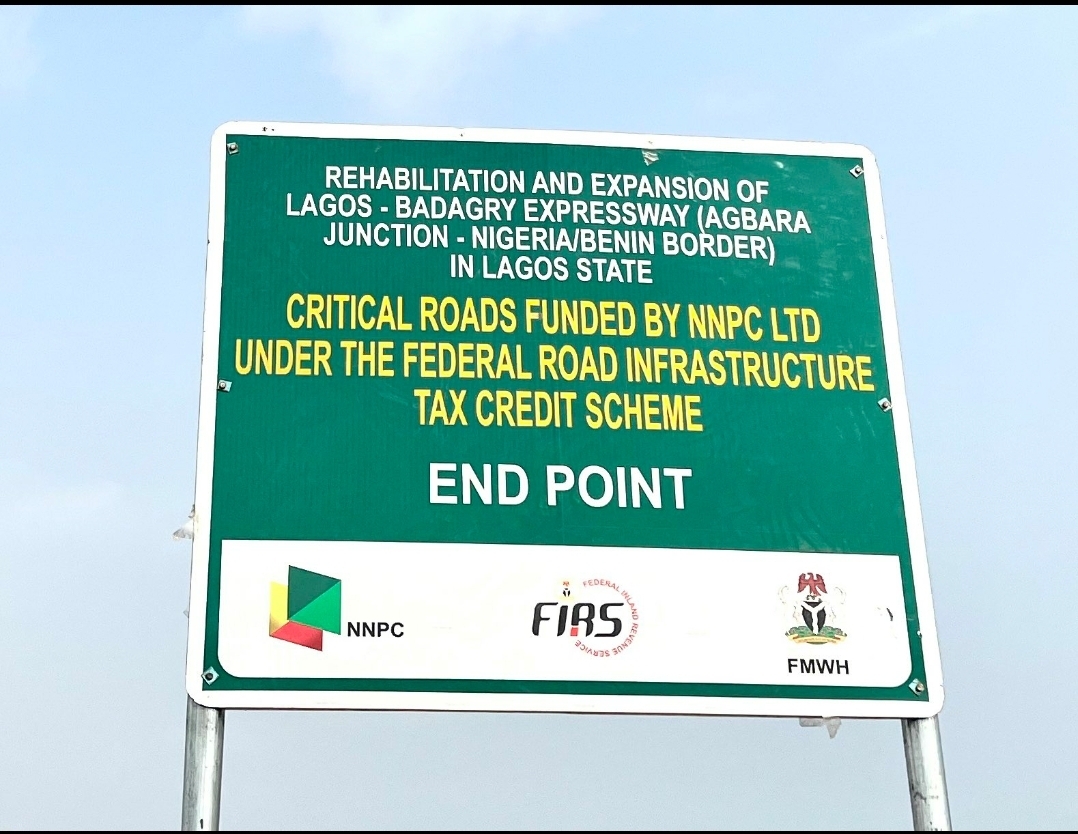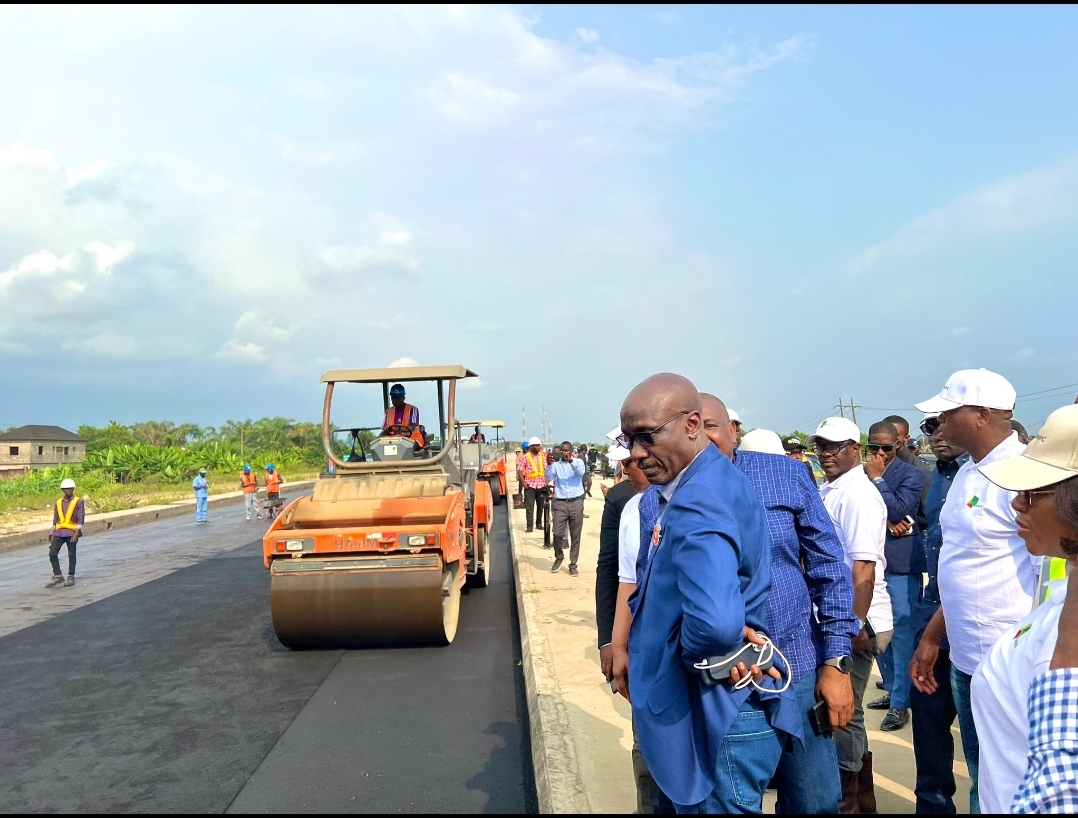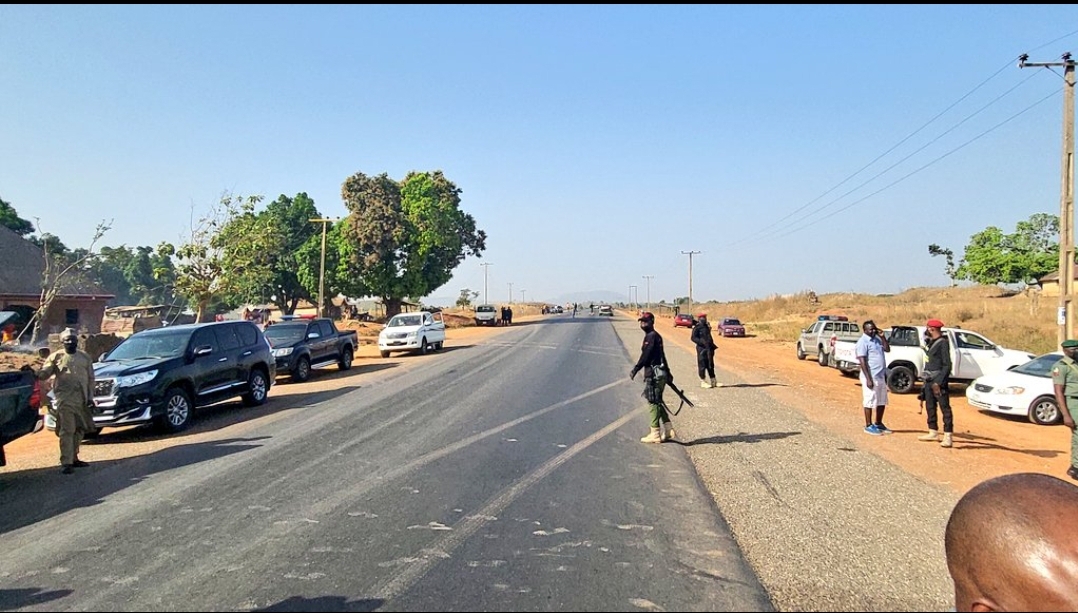
The NNPCL intervention in this regard, therefore, is an approach long overdue and capable of opening a new chapter in the history of qualitative roads infrastructure for economic revitalization.
By Abdullahi Sabiu
A new dawn is here for Nigeria’s infrastructure as the GCEO of NNPC Malam Mele Kyari secured president Buhari’s approval for the NNPCL’s addition of N1.9trn into the budget of a 1,804.6km road project.
Reports indicated that the NNPC is funding the reconstruction of 21 Roads across Nigeria at the total sum of N621.24Bn. The said distance of 1,804.6km will be covering clearly identified federal roads. These roads, apart from easing movement of private and commercial vehicles, will definitely promote economic activity. Furthermore, these roads and which are critical to NNPCL operations.
To be sure, under this scheme, the road projects will be funded by the NNPCL and the equivalent amount will be deducted by the Federal Inland Revenue Service of Nigeria and directly from the Company’s tax obligations. This makes it seamless.

Let us reflect on the formalization process of this beautiful project. The approval was granted by the Federal Executive Council meeting at the Presidential Villa, Abuja. Recall that the meeting was presided over by Vice President Yemi Osinbajo.
A little later, the Spokesman to the VP, Mr. Laolu Akande, addressed State House to the VP, Mr. Laolu Akande, on behalf of the Minister of Works and Housing conveyed the approval to newsmen at the State House in Abuja.
The Federal Executive Council approval was following a recommendation to invest in reconstruction of specific federal roads under the Federal Government Road Infrastructure Development and Refurbishment Investment Tax Credit Policy phase 2 of the Nigerian National Petroleum Corporation (NNPC) Limited and its subsidiaries.
Hear the spokesman to the VP, Mr. Laolu Akande: “The council approved the proposal by the Ministry of Works and Housing for the reconstruction of 44 proposed federal roads with a total length of 4,554 kilometers in the total sum of N1.9trn.’’

Happily, the approval was granted 15 months after the NNPCL expressed interest to invest in the reconstruction of specific federal roads to maontsin the tempo of a smooth supply and distribution of petroleum products across the country.
Recall also, that Buhari on January 25, 2019, signed the Executive Order 007, being the instrument that brought about the Road Infrastructure Development and Refurbishment Investment Tax Credit Scheme. This move was to unlock funding from the private sector to critical road infrastructure in the country. It was something economic experts welcomed with an open heart as quite strategic.
With the Inspection of ongoing rehabilitation work on the Lagos-Badagry Expressway by a tripod combined team, it should not be difficult to see that the project is already in top gear. The trio team includes NNPCL Board and Management, the Federal Ministry of Works and Housing and the Federal Inland Revenue Service. Moreover, the road is among 21 critical roads across the nation, marked out for either rehabilitation or reconstruction to be funded by the NNPCL.

The challenge of road infrastructure has been with Nigeria for decades, as successive governments have tried severally to make sure the nation has good roads, but with minimal success. Myriad of causes explain why the Federal Government’s series of efforts to address road infrastructure has been a bit problematic. First has been the sincerity and commitment of contractors and their collaborators inside the system.
Secondly, the quality of work has been below expectation and this partly explains why some of the roads infrastructure do not last. It requires a reputable company like the NNPCL to get the desired quality of any infrastructural project. This company, with its well-known record of professionalism and prudent project management can effectively handle this new roads project. Furthermore, it will last because the NNPCL, who are the handlers, won’t accept low quality infrastructure. Absence of prudent management, effective and efficient supervision of Nigeria’s road project has been the major reason failure was recorded. It follows logically therefore, that the NNPCL’s intervention this time, will be a huge blessing for the country.
The NNPCL intervention in this regard, therefore, is an approach long overdue and capable of opening a new chapter in the history of qualitative roads infrastructure for economic revitalization.
The funding system was also evenly spread.The funding schedule showed that the North-Central geo-political zone got the lion share of N244.87bn for the construction of 791.1 kilometres of roads.
The North-Central has Benue, Federal Capital Territory, Kogi, Kwara, Nasarawa, Niger, and Plateau State.
The South-South geo-political zone has been marked out for Refurbishment project with the sum of N172.02bn for a total of 81.9 kilometres of road.This zone has, namely Akwa-Ibom, Bayelsa, Cross-River, Delta, Edo, and Rivers state.
With the Inspection of ongoing rehabilitation work on the Lagos-Badagry Expressway by a tripod combined team, it should not be difficult to see that the project is already in top gear. The trio team includes NNPCL Board and Management, the Federal Ministry of Works and Housing and the Federal Inland Revenue Service. Moreover, the road is among 21 critical roads across the nation, marked out for either rehabilitation or reconstruction to be funded by the NNPCL.
The challenge of road infrastructure has been with Nigeria for decades, as successive governments have tried severally to make sure the nation has good roads, but with minimal success. Myriad of causes explain why the Federal Government’s series of efforts to address road infrastructure has been a bit problematic. First has been the sincerity and commitment of contractors and their collaborators inside the system.
Secondly, the quality of work has been below expectation and this partly explains why some of the roads infrastructure do not last. It requires a reputable company like the NNPCL to get the desired quality of any infrastructural project. This company, with its well-known record of professionalism and prudent project management can effectively handle this new roads project. Furthermore, it will last because the NNPCL, who are the handlers, won’t accept low quality infrastructure. Absence of prudent management, effective and efficient supervision of Nigeria’s road project has been the major reason failure was recorded. It follows logically therefore, that the NNPCL’s intervention this time, will be a huge blessing for the country.

The NNPCL intervention in this regard, therefore, is an approach long overdue and capable of opening a new chapter in the history of qualitative roads infrastructure for economic revitalization.









